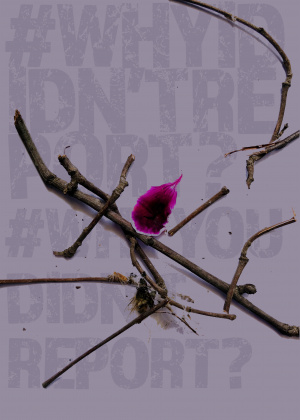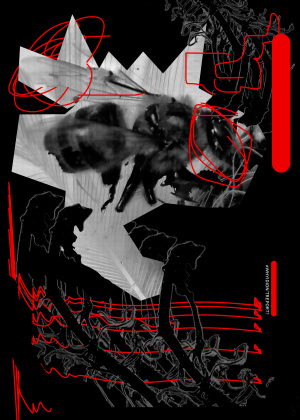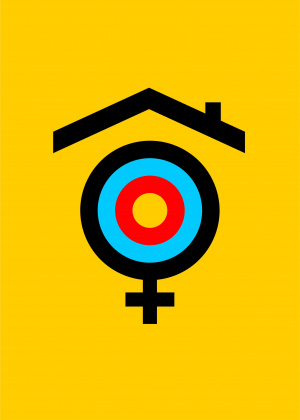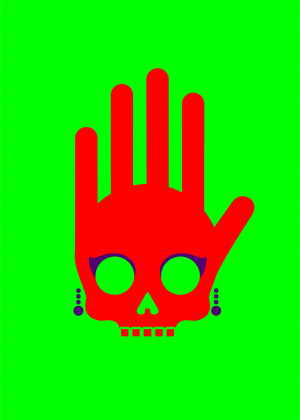"The Muzzle" is a bold and striking visual representation of how society often silences women and strips them of their humanity. The image features a stark black and white portrait of a woman, with her mouth tightly covered by a bright red muzzle—an object typically associated with restraining animals. The red muzzle is vivid and shocking against the grayscale background, drawing immediate attention to the act of silencing. The simplicity of the composition, with the focus solely on the woman’s restrained mouth, highlights the brutal reality of how societal norms, expectations, and violence conspire to silence women.
The intensity of the woman’s eyes, contrasted with the forced silence of her mouth, creates a powerful tension in the image. The use of a muzzle—a tool meant to control and dehumanize—symbolizes the way women are often treated as less than human, their voices stifled and their autonomy stripped away. This design is provocative and unsettling, intended to confront the viewer with the harsh truth of gender-based violence and the societal mechanisms that perpetuate it.
"The Muzzle" serves as a stark reminder of the pervasive and insidious ways in which society seeks to silence women. By using a muzzle—an object that dehumanizes—the image makes a powerful statement about the violence and oppression that women face. It calls on the viewer to recognize and challenge the societal forces that keep women voiceless, urging action against the silencing and dehumanization of women. The design is simple yet deeply impactful, making it a memorable and compelling visual statement.
This poster belong to
Stop killing women
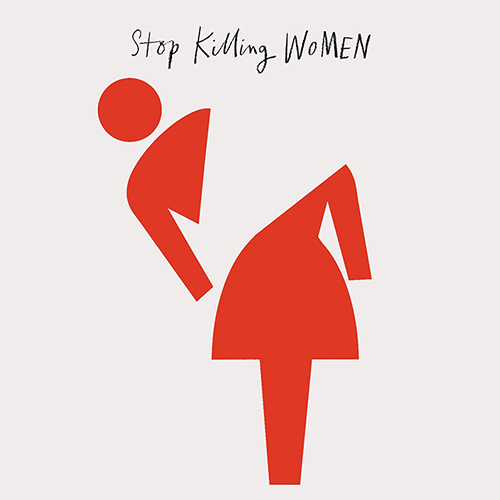
According to UN Women, 2022 was the year in which the most women were intentionally murdered to date: nearly 89,000. Of these ‘Around 48,800 women and girls worldwide were killed by their intimate partners or other family members (including fathers, mothers, uncles and brothers). This means that, on average, more than 133 women or girls are killed every day by someone in their own family.’
If it’s not bad enough that femicide is increasing, the real statistic is probably much higher: ‘for roughly four in ten intentional murders of women and girls, there is not enough information to identify them as gender-related killings because of national variation in criminal justice recording and investigation practices’.
This must change. So this year, we want to ask your help in drawing attention to all forms of violence against women: for the world to stop killing women.
Readmore


